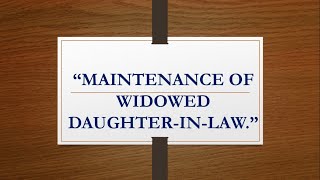@JUDGMENTTAG-ORDER
K.N. Srivastava, J.@mdashThis is an appeal by the unsuccessful plaintiff, arising out of the following facts:
2. The plaintiff is a registered final carrying on wholesale business in fruits at Meerut. This firm booked a number of consignments on two different dates, namely, 6-7-1961 and 17-7-1961, from Meerut to Bombay. These consignments reached their destination in damaged condition. According to the plaintiff, the damage was caused due to carelessness and negligence of the railway employees. The plaintiff filed the suit for the recovery of Rupees 3984.68 Paisa as damages, after serving notices u/s 77 of the Indian Railways Act and Section 80, C. P. C.
3. The suit was contested on various grounds and, inter alia, it was pleaded that there was no negligence and carelessness on the part of the railway employees, and that the damage was caused due to the defective packing of the mangoes which were consigned from Meerut to Bombay.
4. The trial court decreed the suit for the recovery of Rs. 3364.36 Paisa with proportionate costs, holding that the damage was due to the negligence of the railway employees. The defendant filed an appeal. The lower appellate court held that the packing of the mangoes was defective and there was no negligence on the part of the Railway Administration in carrying the consignments from Meerut to Bombay. In this view of the matter, the appeal was allowed and the suit was dismissed in its entirety.
5. Being dissatisfied, the plaintiff has filed this second appeal.
6. The first point for determination in this case is as to whether there was any negligence on the part of the Rail-Way Administration in carrying the goods from Meerut to Bombay. Two consignments were booked on 6-7-1961. They were despatched from Meerut and they reached Delhi the same day at 9-15 a. m. They were detained at Delhi till 8-7-1961 and on that day they were despatched for Mathura, where they reached at 7.45 a.m.
7. The contention of the defendant-respondent was that at Delhi Station four wheeler luggage van was not available and, therefore, the consignments could not be despatched for onwards journey till 8-7-1961. This will not exonerate the Railway Administration. It was the duty of the Railway Administration to have forwarded the wagons or to have made some alternative arrangement. The consignments consisted of fresh fruits. Under the contract, the Railway Administration was bound to send the consignments to the destination at the earliest. The fact that no four wheeler luggage van was available at Delhi Station could not be a valid plea for detaining the consignments at Delhi for two days.
8. At Mathura the consignments were again detained and they reached Baroda next day at 11.30 a. m. on 10th July, 1961. The plea of the Railway Administration was that there was no connecting train in which the van could be attached. This too is not a valid plea. It was the responsibility of the Railway Administration to have despatched the goods in such a manner that they could reach their destination within the shortest time without being detained for the non-availability of connecting trains. On this ground as well the Railway Administration could not claim that due care was taken to carry the goods to their destination expeditiously.
9. u/s 46-C (e) of the Indian Railways Act, ''Parcel'' has been de-fined as any package or merchandise or Other goods entrusted for carriage by passenger or parcel train. The Railway Administration had accepted these consignments as parcels to be carried to the destination to which these consignments were booked. Thus, the Railway Administration had agreed to carry these goods to their destination by a parcel train or by a passenger train.
10. In the trial Court, a question was put to the defendant-respondent''s witnesses, who were railway employees, and it was elucidated in their statements that from Delhi direct trains were available, but these consignments could not be sent by those trains, because one of the trains, namely, the Parcel Express which left Delhi for Bombay in the night of 6-7-1961 was cancelled due to the non-availability of guard and locomotive. This too cannot afford a reasonable ground for holding that due care was taken by the Railway Administration. It was the duty of the Railway Administration to provide guard and locomotive. If the Railway Administration had not sufficient number of guards or locomotives, which could be requisitioned at the shortest notice, it should have sent notices to the Railway Stations that booking of perishable goods should not be made unless arrangement for their expeditious carrying was made by the Railway.
11. Not only this, at Baroda too the two consignments which were booked on 6-7-1961 were unduly detained. The reason given by the trains clerk was that in the first available train there was no space and the stoppage of the second train was only 15 minutes and it was not possible to attach this van after shunting within a short time of fifteen minutes. Shortage of space in a train too is no ground. The other ground for not attaching this van to the second train also does not appear to be very reasonable. Thus, at Baroda too the two consignments, which were booked on 6-7-1961, were detained without any reasonable excuse. The result of this was that these two consignments reached their destination long after they were due.
12. The plaintiff stated that even when mangoes were packed in wooden boxes they became ripe within three days and got rotted after six days. Had the Railway Administration been careful in despatching perishable goods, the damage to the consignments would not have occurred in spite of the fact that the goods were despatched in wooden boxes.
13. In Dominion of India v. Rupchand Heerachand AIR 1953 Nag 169 not providing a proper wagon was not held to be a reasonable excuse and the Railway Administration was not exonerated of the negligence. In
14. In
15. Learned counsel for the respondent relied on a decision of the Supreme Court in
16. Some other cases were also cited by the learned counsel for the respondent to show that the instant case was not covered u/s 74-A of the Indian Railways Act. I do not agree with this contention. Section 74-A lays down that when a consignment is booked under owner''s risk, the Railway would not be responsible if the packing of the consignment is defective and this fact is noted in the forwarding note, except where the loss is due to the carelessness and negligence of the Railway Administration. In the instant case, there is evidence that the directions laid down under Rule 148 of the Coaching Tariff were not strictly followed, and instead of the mangoes being packed in baskets they were packed in wooden boxes. But, all the same, the loss was not due to the defective packing. It was due to the carelessness and negligence on the part of the Railway Administration because the plaintiff''s evidence, as it stands, leaves no mom for doubt that even in the state of packing in which the mangoes were sent to Bombay, they would have reached in a very ripe condition had the Railway Administration carried them expeditiously to the station of their destination. In this view of the matter, the other rulings cited by the learned counsel for the respondent do not need any discussion in this judgment.
17. So far as the other two consignments, which were booked on 17-7-1961, are concerned, there is a clear finding that the plaintiff did not take delivery of the same for two days. They reached their destination on 20-7-1961. It may be possible that due to the fact that the plaintiff did not take delivery of these two consignments for two days, the mangoes got damaged and in this view of the matter, the plaintiff would not be entitled to the price by way of damages of the consignments which were booked on 17-7-1961.
18. In the result, the appeal succeeds in part. It is hereby partly allowed with proportionate costs. The judgment and decree passed by the lower appellate court are set aside, and the plaintiff''s suit stands decreed for the recovery of Rupees 3394.00 Paisa.

